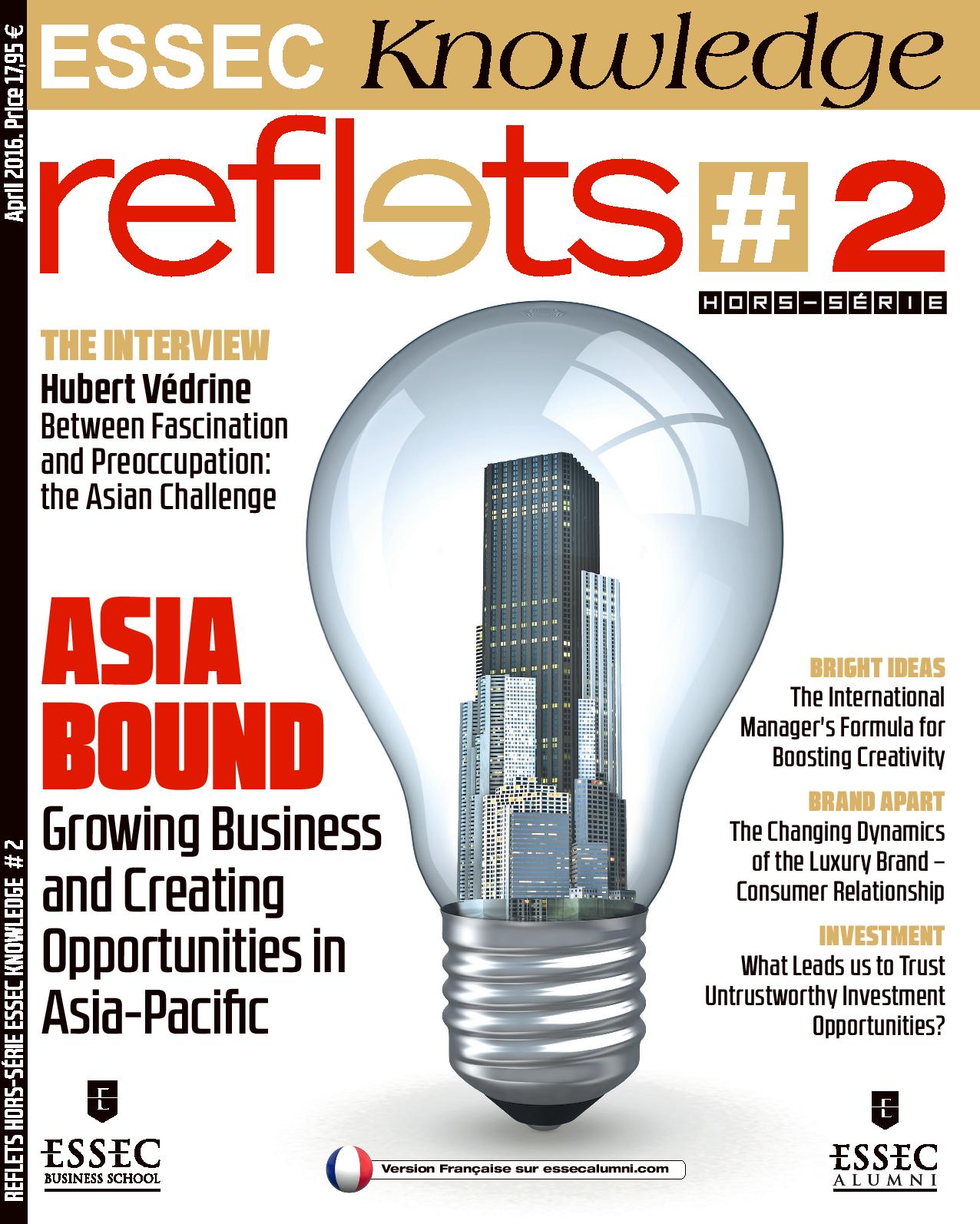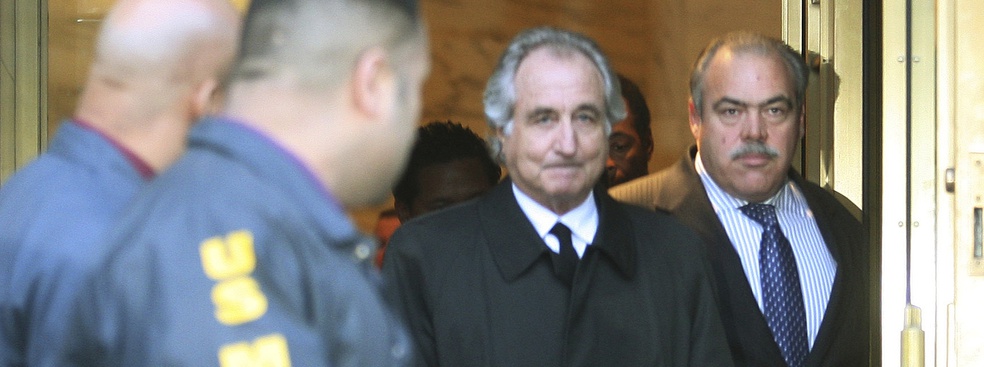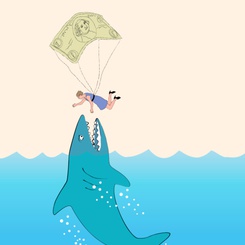From the paper “The Construction of a Trustworthy Investment Opportunity: Insights from the Madoff Fraud” published in Contemporary Accounting Research.
Engaging in any contractual relationship requires a certain level of trust. Trust is needed because the available information usually reduces only part of the uncertainty involved in a relationship. But why do investors trust one opportunity over another – or more precisely, what are the mechanisms through which investment opportunities are considered as trustworthy?
Somewhat paradoxically, the influence of trust on our decisions and actions is perhaps most visible in those cases where trust turns out to be unwarranted. Our research therefor draws upon empirical evidence from one such incident in which the fragile nature of trust was revealed in a rather dramatic way – the infamous Madoff Ponzi scheme scandal.
We interviewed some victims of Madoff’s deception. What emerges from our analysis of this ‘extreme case’ is an interesting set of insights into how the investment opportunity proposed by Bernie Madoff came to be seen as a trustworthy one.
1. “An article in the New York Times or Wall Street Journal [said] the man was a wizard…”
Though the interview process, the first type of trust we identified was process-based trust; that is trust “tied to past or expected exchange such as in reputation or gift exchange.” This kind of trust is not necessarily based on a direct assessment of performance, but rather from someone’s associations with other trustworthy persons or institutions like the NASD or a successful friend: “A lifelong friend of mine, who is one of America’s wealthiest individuals, suggested that I invest with him, because I was looking to put a chunk of money in what I considered a relatively safe and consistent return…”
2. “The tie to the Jewish community […] there was no other place to put the money…”
When trust is built on the basis of knowledge about personal characteristics such as one’s family background, age, ethnicity, we call this characteristic-based trust. Common backgrounds tend to reduce the perceived need to negotiate in detail the terms of an exchange or inquire into the other person’s credibility. “[Madoff’s] tie to the Jewish community, Jewish philanthropy, Jewish charities and the fact that his friends were also successfully working with [him]; there was no other place for us to put the money.”
3. “The Securities Exchange Commission [gave] him a clean bill of health…”
Many investors rely on institutional based trust – in this case, regulatory bodies. Some of the interviewees consulted publicly available material prior to investing and were reassured by Madoff’s claim that he had been investigated by the SEC and that he had received a “clean bill of health”.
The problem with this type of trust is that sometimes it is unwarranted. In fact, a complete examination of Madoff’s activities was not undertaken be the SEC and since Madoff’s arrest, was criticized for its lack of investigative diligence. In a sense, this type of court decision confirms the dilemma surrounding institution based trust and controls: while regulatory bodies are expected to fulfill important monitoring and control functions, these agencies ultimately cannot be (legally) blamed for not having detected a case of fraud. Investors should not rely blindly on them – and must instead accept responsibility for their own investment decisions.
4. “Leading big-name auditors…”
Another form of institutional-based trust comes not from regulatory bodies, but from other intermediaries that supposedly provide market participants with a form of warranty or guarantee that a common set of rules is being followed.
Auditors, for example, can help foster trust. Nevertheless, the quality of an audit ultimately remains difficult to asses. Madoff’s broker-dealer firm BMIS was audited by Friedhling & Horowitz, CPAs who received fees between 12 000 and 14 500. As it turned out, they simply pretended to have audited Madoff’s operations and the SEC charged him in March 2009 with securities fraud. Comforted by signatures, labels, and “big names”, investors were lulled into a fraudulent scheme.
5. “The whole deal with Bernie Madoff was, you felt lucky to be in the club…”
While the above mentioned points don’t make Madoff an overtly active participant in the deception, he was certainly more than a passive bystander.
On the one hand, face-to-face encounters offer the possibility for a more intimate social relationship in which the contracting parties can subject each other to increased scrutiny. On the other hand, they also offer a stage where charisma and persuasive talk can lead to an effective construction of a trustworthy impression.
When Madoff did meet with investors, he would point to the SEC regulatory role, explain that his investment strategy needed to be kept secret for it to continue offering returns, and would sometimes refuse a first attempt to invest – the implication being that the investor would become a member of an exclusive club.
6. “I received a very, very detailed monthly statement, every month without fail…”
Finally, Madoff used account statements to create feelings of trust. Indeed, information is at the heart of any contractual relationship. It allows investors to make informed investment decisions and to verify whether other contracting parties fulfill their obligations.
In light of the dramatic implications of the Madoff fraud, it would appear natural to ask how such a case can be avoided in the future. The first, and somewhat sobering, answer would probably have to be that such cases of fraud can never be completely avoided. For as soon as the participation in an exchange requires trust, there is always the possibility that such trust will be abused. Without the possibility for deceit, trust would not be necessary in the first place.
Yet this is hardly an answer that regulators and representatives of state and market regulators can accept. As the Madoff case demonstrates, an important part of trustworthiness that investors rely on is produced through actors such as the SEC or auditors, whose role is to monitor and control market participants. The more often they fail in properly fulfilling this role, the more damage will be done to investors, and the more the marketplace will suffer in terms of credibility and trustworthiness.
While this would negatively affect the functioning of financial markets in general, one may also see some positive element in it. If institutions lose some of their credibility as trust-producing mechanisms, investors would apparently have to accept more responsibility for themselves. In a sense, there is a paradox at work here. Good institutional controls are necessary for the functioning of the financial markets overall. But the better the institutional controls work overall, the more investors have reason to trust them, which may actually result in more dramatic losses in those cases where the controls do not work. This is because investors may too easily accept institutionally-produced information as credible, which would lower their perceptions of risk when considering a particular investment opportunity.
Perhaps the most appropriate way to address the problem of fraud is then to work on two fronts in parallel. On the one hand, it seems critical to have well-functioning regulatory bodies that are equipped with sufficient resources to carry out detailed monitoring and due diligence. On the other hand, there is a need to be aware that even the best controls will sometimes fail. One reaction on the institutional level could be to restrict the size of the portfolio that investment advisors are allowed to manage. While this would probably reduce the efficiency of investment funds, it would at the same time keep the potential damage small.
On the individual level, the best way to limit one’s potential losses is perhaps still the well-established rule of diversification. Diversification allows investors to reduce risk by holding a variety of different assets in their portfolio. The diversification principle can also be applied to the intermediaries used by investors. Even if investors can not entirely rule out cases of fraud, diversification among different intermediaries at least allows them to reduce the relative impact of such events on their wealth.
Another possibility would be to explicitly foreclose particular forms of exchange. Our interview with the CFO of an organization that decided not to invest with Madoff provides an example if such a mechanism. The CFO explained that his organization never considered investing with Madoff because they had a firm policy against investing in funds that were managed by members and because they require and independent custodian for any management account investment. Rules of this nature prevent against entering into certain types of investments even when there are “good” reasons to do so, such as high past performance, reputation, or an exclusive right to invest.
From the ESSEC Knowledge Magazine:










